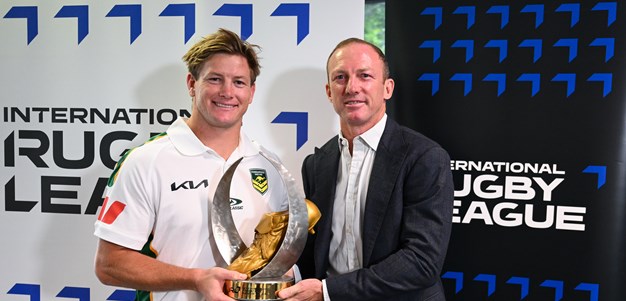
It’s become abundantly clear the proposed 100-person limit on venues set down by the Queensland Government is going to be arguably the biggest challenge that has ever faced community rugby league.
The sport, colloquially known as ‘the greatest game of all’, is an institution north of the border.
It’s the glue that binds communities together… however, the cap on numbers at venues has put a hot torch to the adhesive that unites the games’ number one asset - its people.

Whilst it might be vexing, and I’m the first to admit at times I’ve felt bitter, frustrated and agitated at the fact we can’t just ‘get on with it’, we have to continually remind ourselves of how serious the COVID-19 pandemic has been, and continues to be, as governments cautiously try and return our country to some form of normality.
Following today’s highly-anticipated release of the ‘Return to Play’ Handbook, I, like many, are delighted at the prospect of community rugby league returning as early as July 24, but a great level of innovation is needed to tackle the biggest challenge of losing its primary stakeholder.
The magic number of 100, albeit necessary at this current time to ensure a safe return to play, all but rules out the opportunity in the short term for us to pass through the turnstiles at any local ground and enjoy a rustic burger, ice-cold XXXX and the sound of bone crunching hits, with the occasional "get 'em onside ref" yelled from afar.
And whilst we may not miss out on our live footy fix for the entire season with restrictions rumoured to ease further should we continue to 'crush the curve', it does bring greater uncertainty to our favourite pastime.

So, does that mean the end of community footy in 2020? Of course not.
Is it going to be challenging? Potentially.
But can we overcome it? Well when there’s will, there’s a way.
There has been an extraordinary amount of innovation shown this year to overcome the challenges of a worldwide pandemic and it's now rugby league’s turn to be a beneficiary.
The once-in-a-lifetime event has taught us to be agile, which means the way we participate in rugby league might be new and not like previous seasons... and we need to accept this.
There are a host of clubs in Queensland that may have to look at staggering their game days out across many venues, and at different times and days initially.
Does it mean the end of community footy in 2020? Of course not.
It might mean junior teams are only given 45 minutes a week for training, and it might include a game against their own teammates only.
Whilst it's not ideal, some footy is better than none considering the circumstances, and I'm sure there won't be too many complaints from the young tackers who are chomping at the bit to showcase their new and improved backyard footy tricks and skills to their teammates.
Whilst there would be a need for further volunteer capacity for this to happen, the prospect of returning Queensland's number one sport would hope to inspire all to get in and give a helping hand where required.

Staggering games may also give the opportunity for at least one parent to attend weekly matches given the proposed restrictions - this clearly being a hot topic expressed on social media.
The strain on finances has also been shared as a big concern with traditional revenue sources from gate takings and canteen and bar sales being limited due to minimal or no crowd.
With this being a genuine issue, it will mean participants may need to make financial sacrifices - such as player / referee payments or that free can of XXXX at full-time - to get back on the field.
It may also mean clubs will need to look at alternative sources of revenue to pay for compulsory insurance premiums and the like, like Queensland Government grant funding, or even asking their members to collect their cans and bottles and give to the club to earn cash through Containers for Change.
Local matches can also be brought to fans at the click of a button.

The near-lockdown restrictions in response to the worldwide pandemic has forced us to be more connected than ever through technology, so matches could be live-streamed onto club social media pages, and results and game action shots could also be shared to ensure passionate fans didn't miss out, despite not being allowed to be there in the flesh.
Just like we all enjoyed last night's restart to the NRL season in the comfort and safety of our own homes.
If some local clubs / leagues feel they can't return in 2020 for good reason, then that decision will be respected and supported, but the guidelines released today shouldn't make us wave the white flag immediately because all our competitions across the state are very diverse.
The announcement also gives us hope that we are getting closer to community rugby league being a reality for some.
We should all draw inspiration from former Queensland Premier Anna Bligh who rallied and united the state with that iconic definition of us in 2011:
"We are Queenslanders. We're the people that they breed tough north of the border. We're the ones that they knock down and we get up again."
COVID-19 has knocked our sport down, but it's now time to get up and make the greatest game of all in Queensland, great again.
It's clear the 100-person rule will be a challenge, but it's the way to get back on the field safely, and while there is hope, we should continue to innovate and explore all options to get back and enjoy the game we all love.
*Prior to joining QRL's digital team full-time earlier this year, Cameron Stallard was based in Emerald as Central Highlands' QRL operations manager since 2015.




